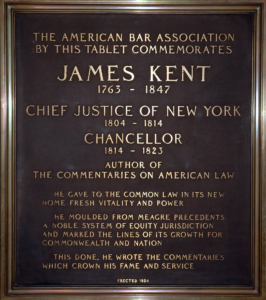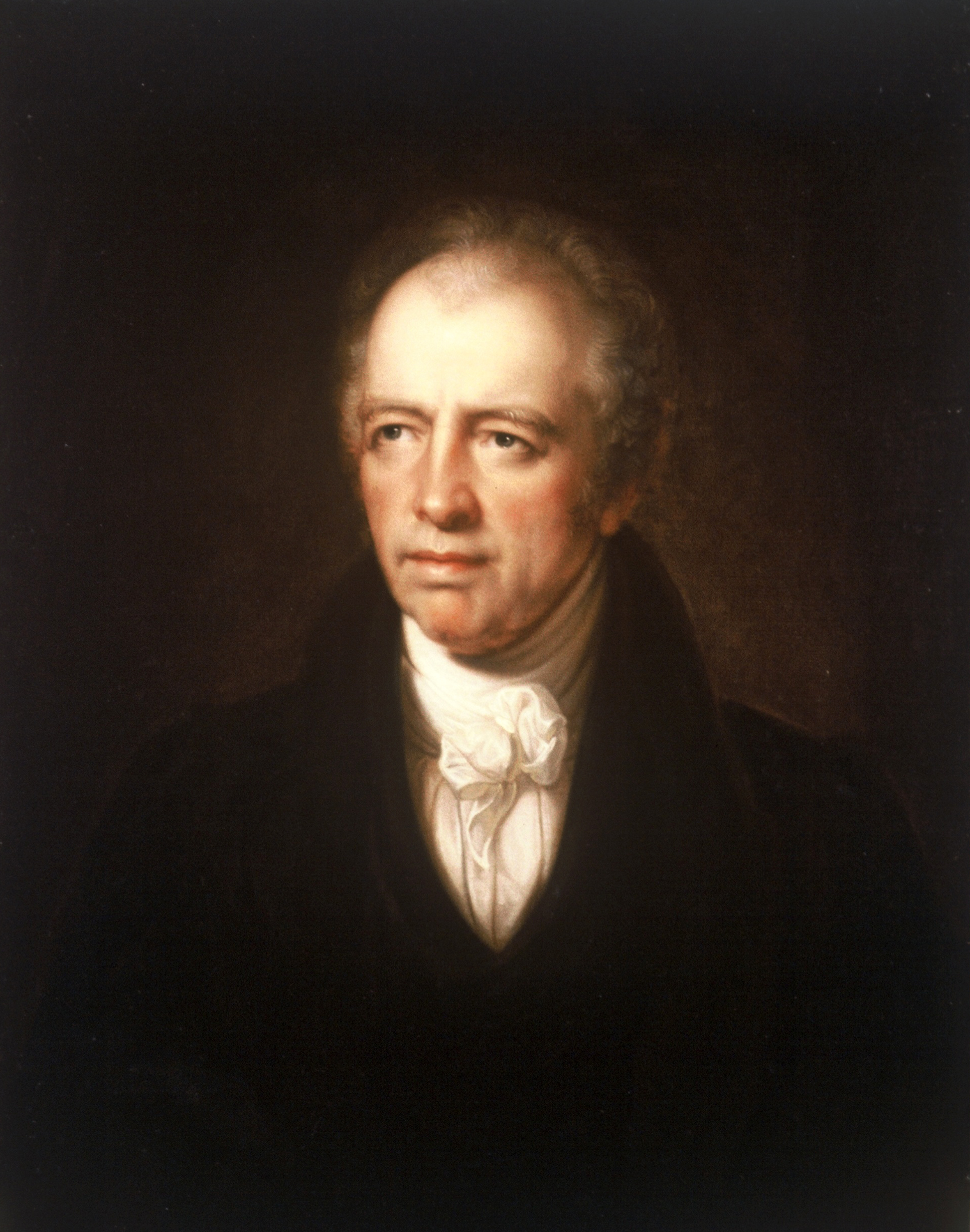1763-1847
Associate Justice of the New York Supreme Court, 1798-1804
Chief Justice of New York, 1804-1814
Chancellor of New York, 1814-1823
James Kent was born in 1763 in the village of Doanesburg, New York, the son of Moss Kent, a lawyer and first Surrogate of Rensselaer County, New York. He was educated at the Latin School in Danbury, Connecticut, and entered Yale College in September 1777. His studies were repeatedly disrupted by the Revolutionary War and his childhood home was burned by the British in 1779. Upon graduating from Yale in 1781, Kent spent three years studying law in the office of New York’s first Attorney-General, Egbert Benson. He was admitted to the bar in 1785 and formed a partnership in Poughkeepsie, New York with Gilbert Livingston. James Kent was elected to the New York Assembly in 1791, served for two consecutive terms and was again elected to a further term in 1796.
In 1793, James Kent relocated his law practice to New York City and the following year, he presented lectures in law at Columbia College. In 1796, John Jay, Governor of New York, appointed Kent as Master in Chancery, and the following year as Recorder of New York City.
In 1798, James Kent was appointed a Justice of the New York Supreme Court of Judicature and he became Chief Justice of that Court in 1804, a position he held until 1814, when he was appointed Chancellor of New York. The many important opinions that he authored include Hitchcock v. Aicken (1803), People v. Croswell (1804), Yates v. Lansing (1810), People v. Ruggles (1811), Taylor v. Briden (1811), Livingston v. Van Ingen (1812), Clarke v. Morey (1813) and Gardiner v. Village of Newburgh (1816).
In 1821, Chief Justice Kent was a member of the New York State Constitutional Convention where he unsuccessfully opposed the raising of the property qualification for African American voters. Under the 1821 Constitution, he was required to retire as Chancellor upon reaching the mandatory retirement age of 60 years, which occurred in 1823.
James Kent resumed teaching at Columbia College in 1824. His lectures now incorporated the extensive research that he had undertaken for his judicial opinions. These lectures were to become the basis for his landmark treatise on the American common law, Commentaries on American Law. At the time of his death, on December 12, 1847, he had just completed the sixth edition of this work.
In The Founder’s Constitution, an anthology of writings (letters, records of debates and early cases) relating to the Federal Constitution, Chancellor Kent’s Commentaries are included as follows:
- Article 1, Section 1
Document 10 James Kent, Commentaries 1:207–10, 1826
- Article 1, Section 8, Clause 4
Document 21 James Kent, Commentaries 1:397–98; 2:33–63, 1826, 1827
- Article 1, Section 8, Clause 10
Document 11 James Kent, Commentaries 1:1–4, 15–19, 171–76, 1826
- Article 1, Section 8, Clause 11
Document 16 James Kent, Commentaries 53-67, 1826
- Article 1, Section 8, Clause 15
Document 21 James Kent, Commentaries 1:244–50, 1826
- Article 1, Section 9, Clause 1
Document 26 James Kent, Commentaries 1:179–87, 1826
- Article 2, Section 2, Clauses 2 and 3
Document 31 James Kent, Commentaries 1:154–68, 1826
- Article 4, Section 3, Clause 2
Document 6 James Kent, Commentaries 1:360–61, 1826
- Amendment I (Speech and Press)
Document 32 James Kent, Commentaries 2:12–22, 1826

|
Former Chief Judge Judith S. Kaye on Chancellor Kent In 1998, then Chief Judge Judith Kaye wrote about Kent’s influence on American Law in Commentaries on Chancellor Kent. |
ABA Presentation of Kent Memorial Tablet On November 24, 1924 the American Bar Association unveiled a plaque honoring Chancellor Kent at Court of Appeals Hall in Albany. Calling him a “Great American Jurist,” the proceedings of the event were reported in the ABA Journal. |
|
James Kent to Thomas Washington In 1828, James Kent wrote a charming autobiographical letter to Thomas Washington. |

